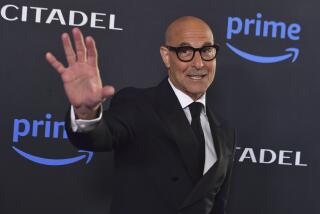Butler Faces Treatment That Is Long, Arduous
- Share via
Cancers of the mouth, such as the carcinoma of the tonsils suffered by Dodger center fielder Brett Butler, will strike an estimated 29,500 Americans this year, killing 8,260, according to the American Cancer Society. Males are more than twice as likely to develop them as women.
Although tumors of the oral cavity are the ninth most common, a tumor of the tonsils “is very unusual,” according to Dr. John Glaspy of UCLA’s Jonsson Comprehensive Cancer Center.
The most common causes are use of tobacco, especially chewing tobacco, and alcohol, which bathe the mouth and upper digestive tract in carcinogens. Smoking and drinking are thought to be responsible for the related cancers that killed baseball’s Babe Ruth and actor Humphrey Bogart.
Butler is a born-again Christian who does not smoke or drink, but he did use chewing tobacco early in his career. He chewed tobacco for two to three years about 15 years ago, according to surgeon Bob Gadlage, who performed the tonsillectomy on Butler in Atlanta.
In a 1991 story in Sports Illustrated for Kids, Butler told of a 1983 meeting with a boy seeking his autograph--a 10-year-old who was excited to show he used chewing tobacco just as Butler did. Butler offered the young fan a deal: If he stopped chewing tobacco, so would Butler.
“There are also the inexplicable cases, which occur in people who have no risk factors that we know about, but who have a genetic predisposition that allows the tumor to grow,” said Dr. Raymond J. Melrose of the USC School of Dentistry.
Butler’s mother died of cancer, a fact that hints at a possible genetic link.
Butler’s tumor was discovered during a routine tonsillectomy, and the plum-sized growth was immediately removed. Surgery “is definitely considered the gold standard,” said Dr. Oscar Streeter of USC’s Norris Comprehensive Cancer Center. The surgery is almost always followed up with a six-week course of radiation to remove any remaining disease.
“What is positive for him is that most head and neck cancers stay isolated above the neck,” Streeter said. “They usually don’t go elsewhere [in the body], so you can treat with radiation” to root out the last malignant cells.
Oral cancers are normally “highly curable” if caught early, Glaspy said.
In Butler’s case, unfortunately, malignant cells have already spread to at least one lymph node. Surgeons have scheduled an additional operation on May 21 to remove lymph nodes in the neck and a small amount of muscle tissue adjacent to the tumor site.
“Regional spread obviously makes the prognosis somewhat worse,” Streeter said.
Butler’s doctors in Atlanta estimated a 70% chance that he will survive five years.
“It must have been a fairly rapidly developing tumor for it to reach that size before it was detected,” Melrose said. “Paradoxically, that rapid growth may allow the tumor to respond better to the radiation therapy that they are planning,” because rapidly dividing cells are more susceptible to the lethal effects of radiation.
One of the first things Butler will have to do, Melrose added, is go to the dentist and have all his teeth fixed, because the radiation will damage the mouth’s recuperative powers. Natural antibiotics in saliva are important factors in controlling bacteria in the mouth.
The radiation therapy “will just knock out” the saliva-producing parotid glands on both sides of his neck “and he will have very severe dry mouth for a long period of time,” Melrose said.
The radiation treatments will also damage the mandible, the lower portion of the jaw that supports the bottom teeth.
“The mandible will lose a substantial degree of its ability to repair itself,” Melrose said. “If you have dental problems, then an infection in the mandible can be almost worse than the [cancer].”
Butler will require “lifelong therapy with fluorides and very careful dental care for the rest of his life,” he added.
(BEGIN TEXT OF INFOBOX / INFOGRAPHIC)
The Diagnosis
Brett Butler, 38, had a cancerous tumor the size of a plum removed Tuesday in Atlanta after a CT scan determined he had Squamous Cell Carcinoma of the tonsils.
Dr. Bob Gadlege, who removed the tumor, will perform surgery May 21 to remove a cancerous lymph node on the right side of Butler’s neck and other nodes. He also will remove some muscle tissue where the tonsil was. Butler will have radiation treatments for six weeks.
More to Read
Go beyond the scoreboard
Get the latest on L.A.'s teams in the daily Sports Report newsletter.
You may occasionally receive promotional content from the Los Angeles Times.










